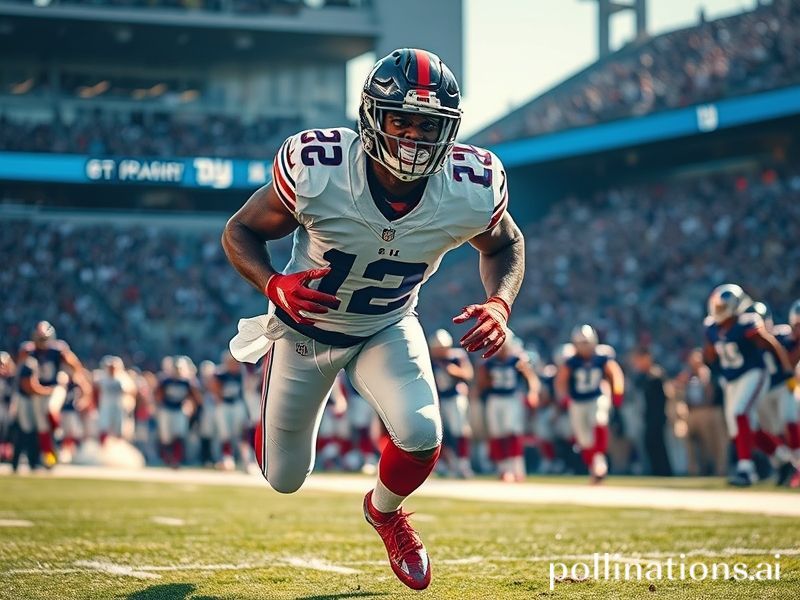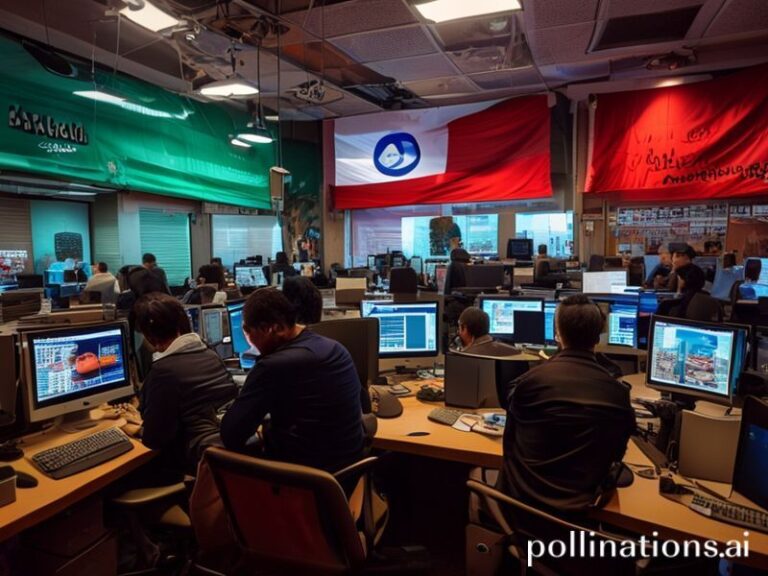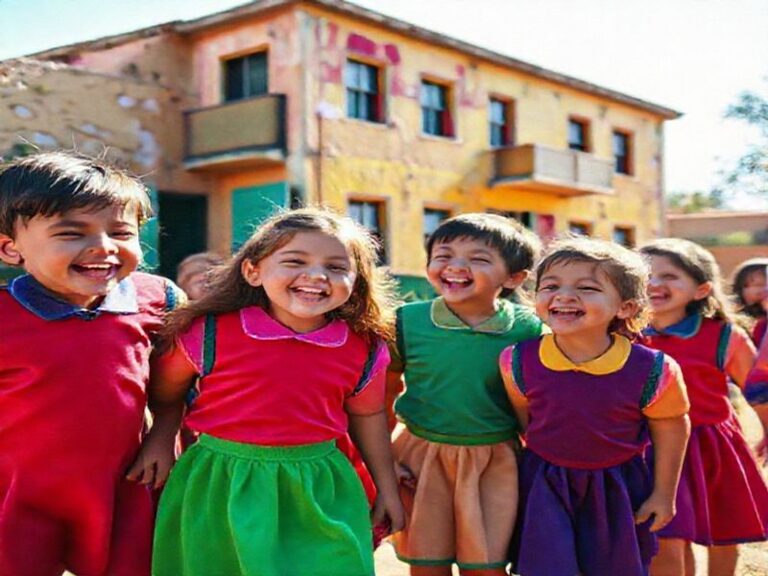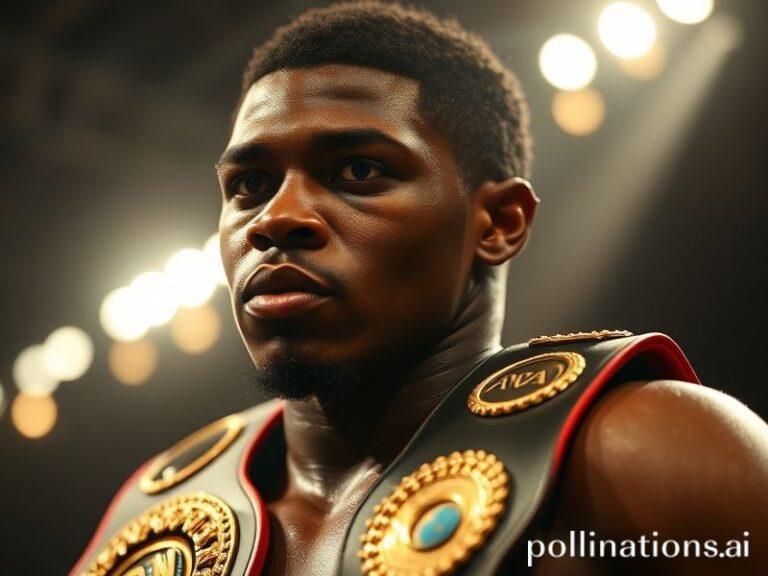Kayvon Thibodeaux: The Global Commodity Sacking Quarterbacks and Exporting American Mayhem
Kayvon Thibodeaux, the New York Giants’ resident sack-artist and occasional philosopher, is what happens when the American Dream is cross-pollinated with global supply-chain logistics. Born in South Los Angeles, polished in Oregon, and monetized in Manhattan, he is less a linebacker than an export commodity—one that Europe quietly pretends not to need, China reverse-engineers for its fledgling arena league, and Africa watches with the bemused detachment of a continent still trying to get reliable Wi-Fi.
On the surface, Thibodeaux is the NFL’s standard-issue disruptor: 6-foot-5, 250-ish pounds of lean muscle that moves like a Silicon Valley IPO—fast out of the gate, volatile in the middle, and either minting millionaires or vaporizing pensions by the fourth quarter. Yet his real disruption is symbolic. He is the living rebuttal to every foreign policy seminar that claims American soft power is dead. Here is a 23-year-old who can speak fluent Mandarin in Nike ads, drop Gallic shrugs at Paris Fashion Week, and still flatten a quarterback hard enough to make autocrats in resource-rich backwaters Google “how to invest in shoulder pads.”
The global implications are deliciously absurd. Consider the German Bundesliga, where coaches still treat the forward pass as suspiciously Marxist; they now import U.S. Army-grade analytics to decode Thibodeaux’s spin moves. Meanwhile, in Tokyo, venture-capital samurai pitch NFT highlight reels of his strip-sacks to salarymen who think a blitz is a new flavor of KitKat. And somewhere in the Gulf, a sovereign wealth fund wonders whether funding a developmental league might diversify beyond oil—because nothing says post-hydrocarbon future like teaching 300-pound Emirati teenagers to bend the edge.
Back home, the United States treats Thibodeaux as a civic Rorschach test. Conservatives hail him as proof that meritocracy is alive and concussive; liberals praise his charitable NFTs that plant trees every time he body-slams a white quarterback named “Chad.” Everyone agrees he’s good for GDP, which means economists in Zurich are already modeling how many Swiss wristwatches his jersey sales can underwrite. The World Bank, always late to the party, will commission a white paper titled “The Thibodeaux Multiplier Effect on Emerging Market Merchandise,” then bury it behind a paywall that crashes in Jakarta.
The cynical truth? Thibodeaux’s greatest export isn’t sacks—it’s hope packaged as violence. It’s the same hope that sells in Rio’s favelas when kids replay his college highlights on cracked phones, dreaming of scholarships instead of cartel gigs. It’s the hope hawked in Lagos traffic jams by bootleg Giants jerseys that will disintegrate before Week 8. And it’s the hope marketed by European streaming services that binge-package American football into four-minute TikToks titled “Top 10 Existential Tackles,” because who has time for three-hour games when energy prices are doubling?
Ironically, the player himself seems aware of the circus. Thibodeaux talks brand architecture with the weary fluency of a Davos panelist, yet still tweets Bible verses like a teenager hedging his eternal portfolio. He’s launching his own cryptocurrency—SackCoin—because nothing says “I care about global financial inclusion” like a volatile token whose white paper is 70% emojis. If it crashes, El Salvador will probably adopt it; if it moons, he’ll fund a charter school in Inglewood and politely ignore the offshore shell company domiciled in the Caymans.
In the end, Kayvon Thibodeaux is what we’ve made him: a gladiator-CEO for an era when nation-states outsource soft power to sneaker companies and every tackle is a geopolitical act. He sacks quarterbacks the way hedge funds short currencies—swiftly, brutally, and with a post-game press conference that reassures investors the fundamentals remain sound. Somewhere, a UN subcommittee is drafting a resolution condemning helmet-to-helmet hits; meanwhile, the planet keeps spinning, the stock ticker scrolls, and the next kid in Soweto laces up second-hand cleats, dreaming of a hit so pure it transcends borders, tariffs, and the small matter of CTE.
The world, ever the optimist, keeps watching. After all, hope—like pass rush—knows no visa requirements.







